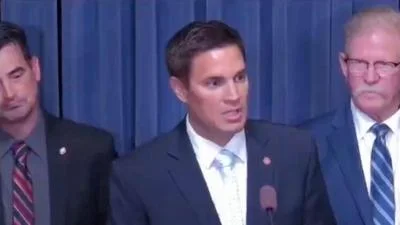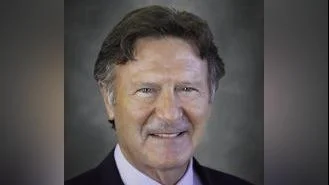Paul Jacobs | Contributed photo
Paul Jacobs | Contributed photo
Republican state House hopeful Paul Jacobs argues Democrats doing what they’re entrusted to do in Springfield starts with standing up to Gov. J.B. Pritzker.
“I believe that the state legislators are either derelict in their duty or darn close to it,” Jacobs told the SE Illinois News as Democrats allowed the governor to unilaterally make all the decisions concerning the state’s handling of the COVID-19 pandemic. “They should be demanding sessions that would resolve the issues that are plaguing the state at this moment.”
Jacobs says the governor recently moving to reenact COVID restrictions in at least 24 counties after infection rates ticked up only sets the state for more strife. Already, small business owners – especially restaurant and bar owners still reeling from the impact of the governor’s initial shutdown – have put forth more resistance this time around.
“The courts say that Gov. Pritzker has overreached in his decisions to close down anything in the state of Illinois,” added Jacobs, who is running in the 115th District. “The governor is still pretending to operate with science, but the people that are consulting with him have said that one of the worst ways to determine problems with COVID is to go by positivity rates.”
Jacobs said he almost considers it a dereliction of duty that more lawmakers haven’t taken a stance against the governor over his iron fisted way of doing things.
“It is not put out by our state leaders, but it is estimated that only 1% of all positive cases come out of restaurants,” Jacobs added. “Why would we just not simply take measures in the restaurants that we have been taking? Sitting 6 feet apart, wearing our masks, etc.”
Jacobs said he’s not surprised to finally see more Democrat lawmakers taking a stand by demanding that the governor hold public hearings to give an accounting for many of his actions related to the pandemic.
“Our legislators can still demand a different approach,” he said. “When you consider the state that we were in financially before COVID, it is now an extreme emergency after COVID.”






 Alerts Sign-up
Alerts Sign-up